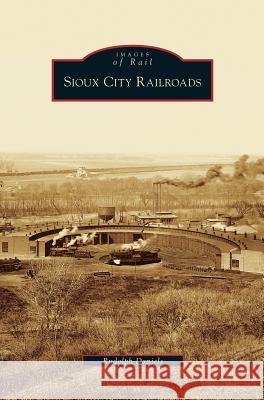Sioux City Railroads » książka
Sioux City Railroads
ISBN-13: 9781531632649 / Angielski / Twarda / 2008 / 130 str.
Toward the end of the 19th century, railroads transformed Sioux City from a western outpost to one of the fastest-growing municipalities in the world. Prior to the arrival of the railroads, Sioux City depended on the Missouri River for transportation. The Missouri, however, was not dependable because of flooding and droughts. As an all-season mode of transportation, the railroads permitted the flourishing of the meatpacking industry in Sioux City. In fact, it was the large number of different railroad companies that made Sioux City a major agricultural center rather than just another county seat or market town. Trains carried cattle and hogs to the plants and then carted away the Sioux City-processed products to the nation and to the world.
Toward the end of the 19th century, railroads transformed Sioux City from a western outpost to one of the fastest-growing municipalities in the world. Prior to the arrival of the railroads, Sioux City depended on the Missouri River for transportation. The Missouri, however, was not dependable because of flooding and droughts. As an all-season mode of transportation, the railroads permitted the flourishing of the meatpacking industry in Sioux City. In fact, it was the large number of different railroad companies that made Sioux City a major agricultural center rather than just another county seat or market town. Trains carried cattle and hogs to the plants and then carted away the Sioux City-processed products to the nation and to the world.











